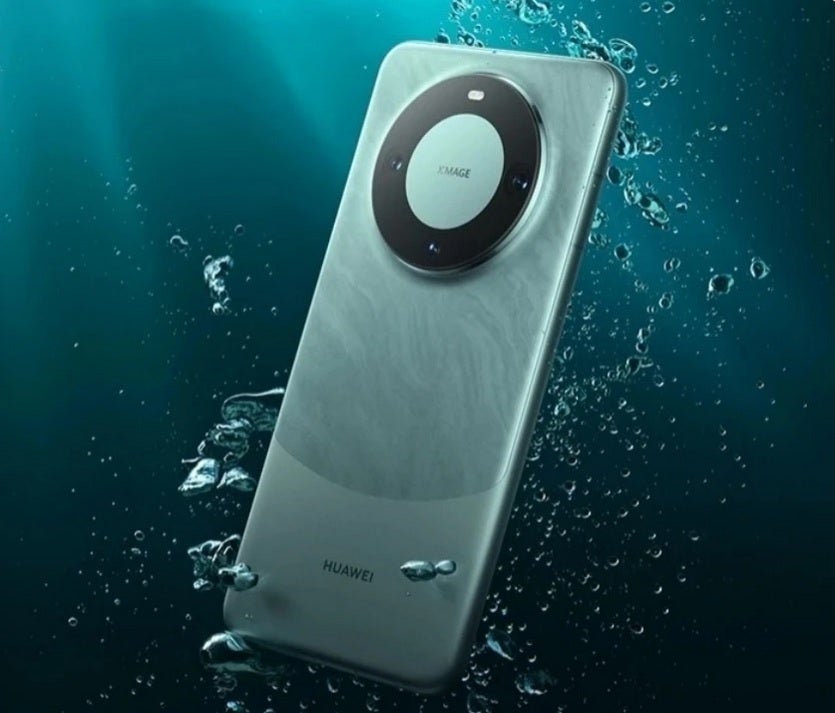China claims that security issues with the iPhone led it to ban the phone in central government offices

Last week we told you that in the world's largest smartphone market, China, the iPhone had been banned from being used in the offices of central government agencies. Officials working at these offices were told not to bring their iPhones to work. This all suspiciously took place after Huawei's surprise introduction of its new Mate 60 Pro flagship phone which includes a homemade 5G Kirin chip for the first time in three years since the U.S. banned Huawei from obtaining cutting-edge chips.
China is an important market for Apple and the action taken by China was considered a huge negative for Apple, especially with the release of its new iPhone 15 line rapidly approaching. This was borne out by the huge drop in Apple's stock that took place the following day and the weakness has lingered since. Somewhat overshadowed by the inclusion of the iPhone, China said that all phones made by foreign companies were being banned in central government agency offices.
Analysts believe that the recently announced Huawei Mate 60 Pro will eat into Chinese iPhone sales
According to Bloomberg, China is complaining about security issues on the iPhone. This morning, Chinese Foreign Ministry spokeswoman Mao Ning tried to explain the reason for China's actions against Apple's smartphone by saying, "We noticed that there have been many media reports about security incidents concerning Apple phones." Mao said that the country places "great importance" on security and that all firms operating in China must abide by its laws and regulations.

Huawei's Mate 60 Pro, powered by a 5G 7nm Kirin chipset, has Chinese consumers excited
Mao's comments, when released by China's Foreign Ministry as an official transcript in English, eliminated the word "media" from her comments which changed the meaning of her statement explaining how China learned about the claimed security issues in the iPhone. In Chinese, it sounds like the country had simply spotted media accounts of these problems while the English transcript made it seem as though China had first-hand experience with the alleged security problems on the iPhone.
This past summer, Russia said that several thousand iPhone units were infected with spyware
Flaws in iOS have been exploited on the iPhone before getting patched. An iPhone that belonged to a staff member of a Washington-based civil society organization was the subject of a remote attack that used spyware developed by Israel’s NSO group. Apple not only confirmed the incident but it also pushed out iOS 16.6.1 last week to patch the flaw.
This past summer, a Russian agency known as the FSB, or the Federal Security Service, said that several thousand iPhone units in the country were hacked by an unnamed U.S. intelligence agency. The FSB accused Apple of working with U.S. signal intelligence to infect these iPhone units with spyware although it had no evidence that this had happened. Apple denied the allegations.
China is responsible for about 20% of Apple's annual revenue. Proving the strength of the iPhone in China, during the country's 618 holiday (the second-largest online shopping holiday in the country, while smartphone sales in general declined 8% year-over-year, iPhone shipments rose 8%. But with Huawei's new Mate 60 line generating a response of nationalism among consumers in China, we could see iPhone sales decline in this market despite the excitement coming from the unveiling of Apple's iPhone 15 line.
China also happens to be the country where Apple produces the vast majority of iPhone units. As a result, many Chinese consumers are actually grateful to Apple for giving them the opportunity to collect a pay check. Apple has been looking to eventually move iPhone production out of China and has started building some of its current iPhone models in India simultaneously with production in China. Vietnam and Mexico also have been mentioned as possible locations for the production of future iPhone models.










Things that are NOT allowed: